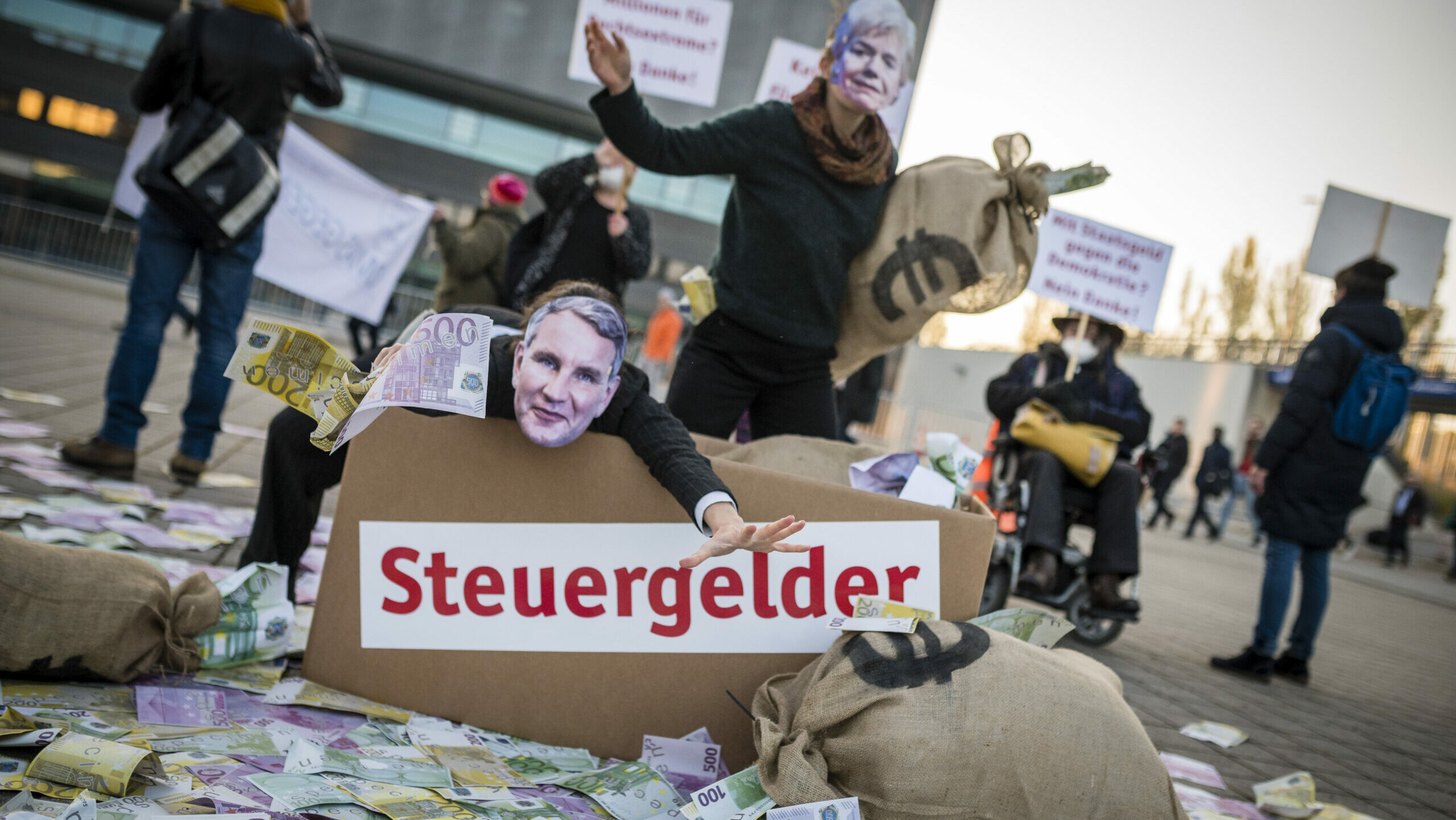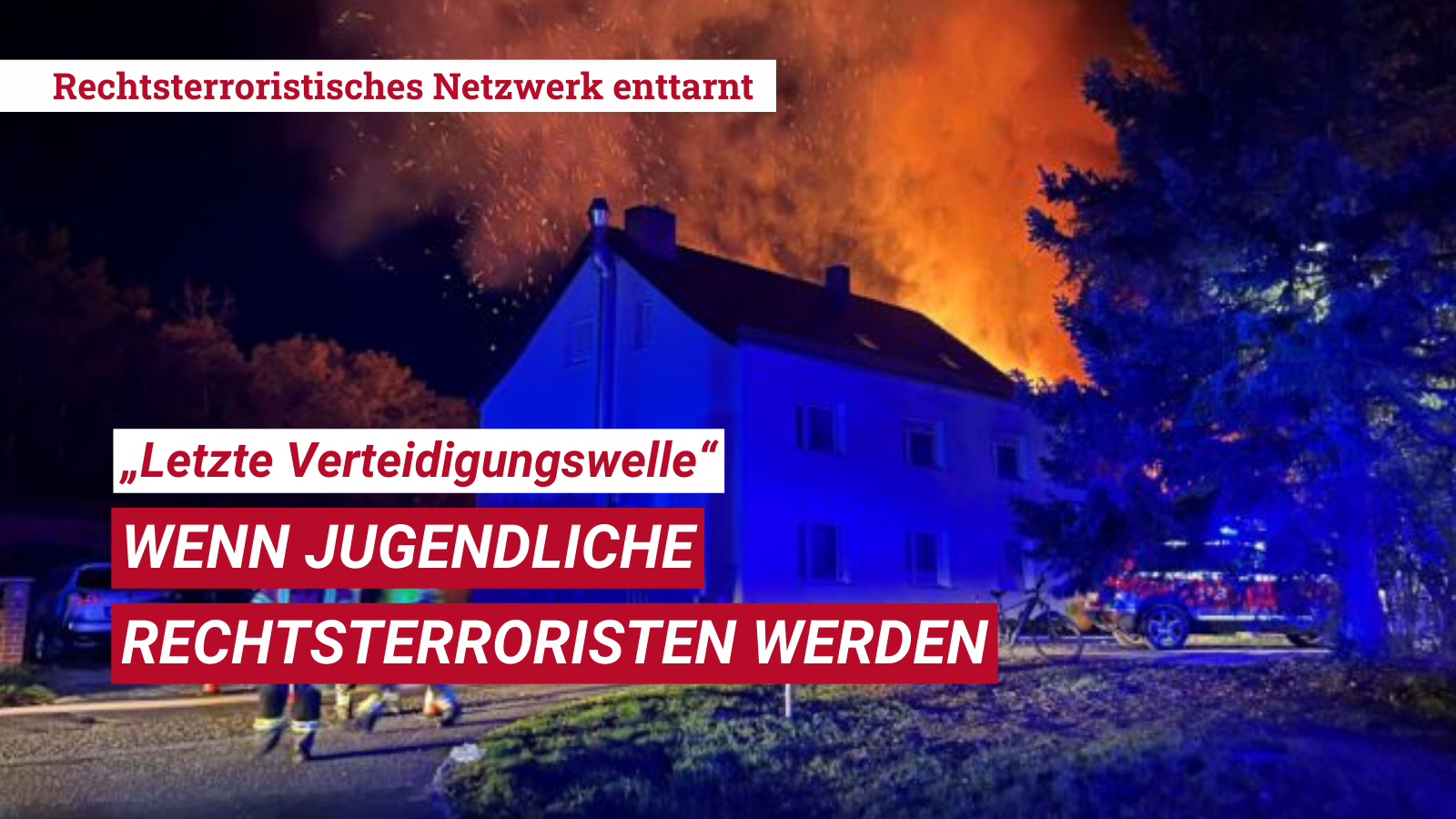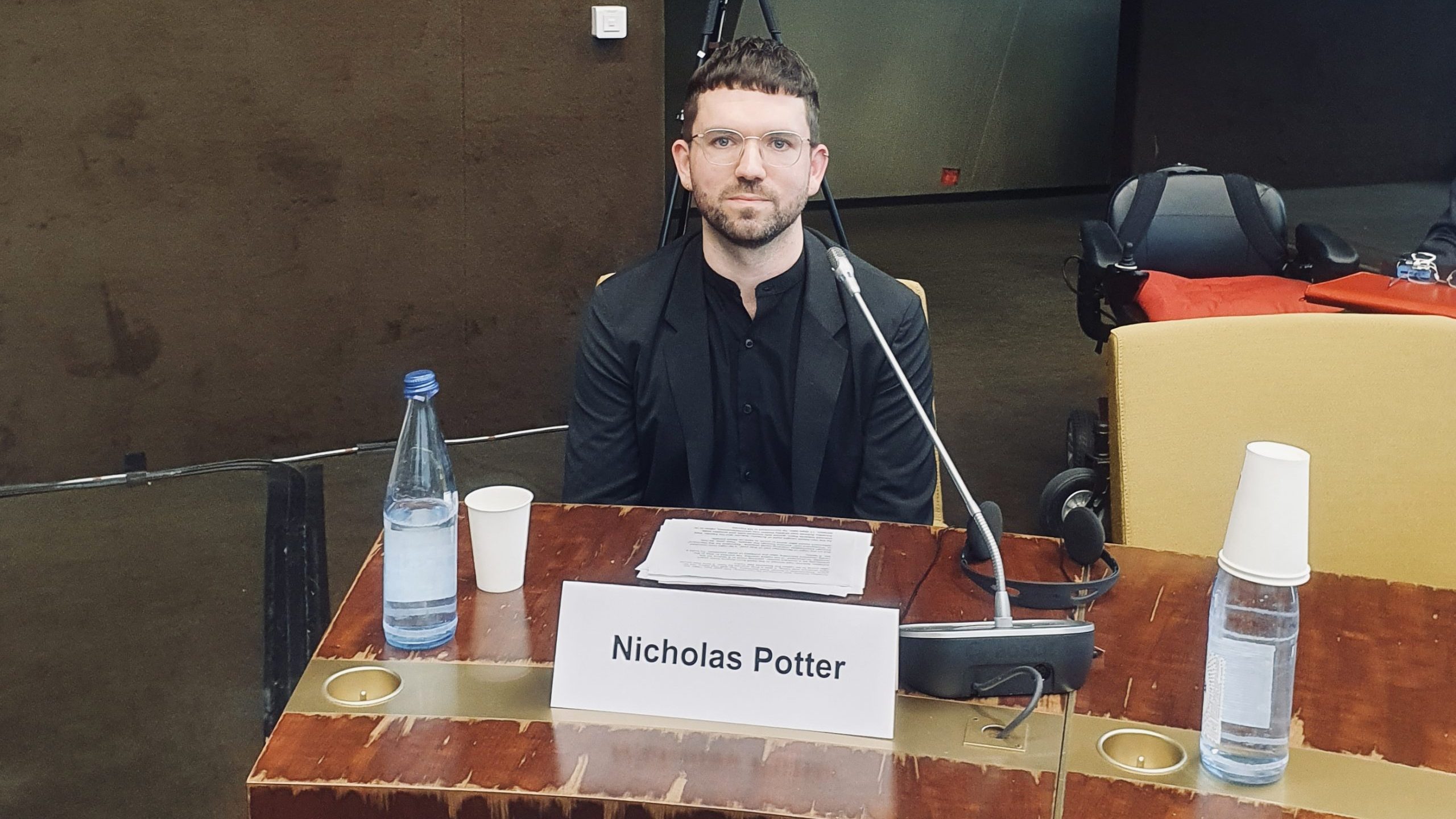One of the most perceptible changes triggered by the growing influence of right-wing populists in parliaments and the media is impacting civil society. Initiatives are being put under pressure, defamed and threatened. And defence against these attacks is demanding progressively more energy and tying up resources. The battle against a liberal public is identity-forming for right-wing extremists and populists.
Timo Reinfrank and Robert Lüdecke
For a long time, civil-societal initiatives and activists experienced attacks from right-wing extremists primarily through direct physical threat situations in their personal environment. This changed when influxes of refugees and migrants began to increase from 2015 onwards: not only did more frequent attacks on people with a refugee background and an immigrant life-story contribute in 2015 and 2016 to the highest number of right-wing-extremist offences in the figures for politically motivated right-wing criminality since the reform of the statistical methodology in 2001. More and more often, journalists, refugee helpers, civil-societal activists and representatives of the judicature are also being targeted. Right-wing-extremist and populist contents have been disseminated throughout society through right-wing-alternative blogs and media and parliamentary representation in all state legislatures and in the Bundestag itself.
Anti-democratic content has been disseminated throughout society
The idea that civil society is the enemy of right-thinking people is no longer being promulgated by right-wing extremists alone: right-wing populists claim to be the sole authentic voice representing an allegedly homogeneous nation. This anti-pluralistic and anti-democratic mindset is diametrically opposed to the civil-societal initiatives and organisations that have signed up to promoting democracy. Where it used to be primarily individual activists who were threatened by right-wing extremists, nowadays it is increasingly projects and initiatives that are also the target of incriminations and attacks, not least those that are supported by programmes of the German states and the “Live Democracy!” initiative of the German Federal Ministry of Family Affairs. The paramount goal of the attacks is to cast doubt upon the entitlement of the sponsors concerned to public money, and to cause their funding to be discontinued.
The initially selective attacks have been followed by systematic defamation through blogs and media promulgating conspiracy theories and right-wing-alternative ideology. The strategy of negative campaigning is frequently suffused with sexist, racist and anti-Semitic undertones, and may not only be directed at institutional publications and events, but also involve personal attacks on individual employees or links to other funding providers. Once the suspicion of a scandal has taken hold, it may be picked up by some of the quality and mass media. This journalistic dissemination ostensibly legitimises the accusations concerned in the public’s perception and renders it additionally difficult to refute them, even when they are meretricious or unsubstantiated.
Right-wing populist attacks on democracy from within
Because right-wing populists and extremists increasingly also constitute relevant parts of the legislature and occupy key positions like committee chairpersons, the present-day attacks on civil society are not comparable to the attacks mounted by the right-wing-extremist party NPD back in the noughties, for example. Right-wing populist members of parliament can draw upon material resources backed by rights of monitoring, information and disclosure, which they systematically exploit in order to put civil society under pressure.
For this purpose, funding providers are embroiled in controversy through minor and major interpellations, in commissions of inquiry, as was the case in Saxony-Anhalt, and parliamentary question times or in municipal bodies. Frequently expressed accusations include alleged infringements of a neutrality obligation or data security, the demand for investigation by the Court of Auditors and the inland revenue, casting doubt on the charitable status, and accusations of embezzlement/enrichment. As ostensible evidence for this purpose, application and accounting documents and minutes are inspected at association registers and regulatory authorities. Besides these relatively formal accusations, contents and activities of the funding providers concerned are also questioned. For example, venues and substantive focus are scrutinised, as are speakers, the origins and utilisation of funding, accompanied by demands for ideological screening of the employees concerned. The attacks become even more direct where right-wing populists form part of the administration on the municipal level, and as in the capital, for example, AfD members are in charge of district authorities.
Civil society demonised as a representative of democracy
In order to explain why large sections of the populace reject the right-wing populists, hostile influences are invented in which the other parties are defamed as “lackeys of the Establishment” or “old parties”, and quality media as the “Establishment’s press”. This leverage is used to create shared demonisation concepts, which also serve as door-openers to different milieus and to break down barriers against right-wing extremists. In this sense, it affects civil-societal funding providers, by stigmatising their involvement as “left-wing-extremist” or causing them to be subsumed under buzzwords like “Anti-Fascist Action”.
In Berlin, the AfD MPs in the state parliament submitted in August a list of 129 questions under the title of “Left-Wing-Extremist Networks in Berlin”. With questions on staffing and financial links, the AfD is attempting to associate an arbitrary selection of organisations, from sports clubs to trade unions, with left-wing extremism. In the Bundestag, the AfD MP Stephan Brandner used the first written interpellation to question the federal government on the financing of the “Fight the Right” campaign. Thereupon, he described public-sector funding of democracy-related projects as “ideologically driven subsidisation of left-wing extremists”. In Saxony-Anhalt, this is having a particularly harsh impact on the organisation “Miteinander” (Togetherness), which in this German state is the paramount sponsor of the efforts to combat right-wing extremism. The AfD MPs in the state parliament submitted a major interpellation featuring 236 detailed questions on the organisation and subsequently applied for its state funding to be discontinued. Following this failed motion, the party once again submitted a major interpellation featuring 130 questions, designed to associate the organisation with anti-constitutional left-wing extremism and thus to cast doubt on its entitlement to public funding.
Disfavoured projects targeted for defamation and paralysis
The right-wing populists are not seriously interested in how the initiatives actually operate: they serve merely as targets for demonisation. This policy of distrust has two major objectives: the AfD aims to selectively defame and paralyse disfavoured projects by exerting pressure on politicians until the funding is discontinued. And it also aims to steadily extend the boundaries of the sayable. The more often it repeats that someone is in its view constitutionally subversive, the more the accusation tends to stick.
Every parliamentary interpellation and smear campaign is accompanied by press coverage and cheap polemics in the social media and contributes towards additional indignation among the groupings concerned. Apart from the threatening gestures in the form of interpellations, the initiatives in question are far more severely affected by the hate that is incited by campaigns of this nature. Whenever public-sector financing of democracy-related projects is involved, these will thereupon receive hate mails, threats, and insults over the telephone. The formulations and accusations concerned quickly reveal who is supplying the keywords for these outpourings of hate. The inhibition threshold for the attacks has here become most perceptibly lower: hate letters are being dispatched not only anonymously, but also by personally named senders; in the social media, too, the vituperation is disseminated not only from anonymous profiles, but also under real names with a photo.
Democratic solidarity instead of desperate defence against defamation
No matter how thoroughly the initiatives concerned refute the accusations, the right-wing populists do not cease to repeat them over and over again. What are essentially always the same imputations are varied and repeated at intervals of a few weeks, so that the funding providers are perpetually on the defensive. Defamatory campaigns also unsettle cooperation partners, the civil service and other funding providers. This has consequences for the choice of issues, partners and speakers, and equally for entirely practical considerations regarding venues and invitation policies.
While the exigencies from outside agencies are increasing, due to pressure to produce justifications and maximise damage limitation, the workload inside the projects themselves is also growing. The campaigns concerned tie up resources and unsettle staff, not least in their private lives. Targeted hate campaigns lead to attacks on the website and the presences in the social networks, the doxing of non-public consultancy rooms and private addresses. They call for infiltration by means of an internship and for demonstrations in front of the institution’s headquarters, while petitions demand the discontinuation of public-sector funding, and thus publicise the AfD’s demands more widely. By monitoring private profiles and posting hate-filled comments in social networks, staff are personally intimidated, while bomb scares, threats to persons and the familial environment combine to create an atmosphere of insecurity.
Defensive battles determine everyday work patterns
The attacks and defamatory accusations are concocted principally by a right-wing alternative part-public, and are echoed predominantly in a correspondingly preshaped milieu. For as long as the public debates primarily address the accusations voiced, and allow themselves to be forced on the argumentational defensive, the narratives are inevitably upvalued, which lends them the relevance they would otherwise lack. What the AfD wants is maximised attention, which is why it is of limited utility to allow the agenda to be publicly set by accusations that are baseless and concocted. Where specious assertions are made and facts are distorted, a response is imperative, but the responses to the hostile campaigns should concentrate on a democratic public and its media.
One paradigm example of a massive hate campaign was experienced by the Amadeu Antonio Foundation in response to the publication of a handout dealing with inequality in the context of early-childhood pedagogics. What was called the child-day-care-centre brochure was addressed over many months by the right-wing alternative media with an interminable series of newly concocted accusations. With selective misinterpretation of abbreviated quotes, embedment in hard-core right-wing-populist hate narratives, and disseminated untruths, they succeeded in achieving occasional mass-media coverage for the campaign against the brochure under the accusation of state-sponsored “political-correctness snooping”. The foundation received not only massive quantities of hate mail, but also threats of murder and assault; the handout was addressed in parliaments and committees in several German states and on the national level.
The parliamentary debates have shown how democratic, cross-party solidarity was able to unmask the disinformation campaigns. Despite right-wing populist polemics in the media and the relevant bodies, the administration responsible did not back-pedal, but re-affirmed its unequivocal stance, and gave its backing to the publication. The academic community and the informed public confirmed the need for the handout, and rejected the attacks on the foundation that published it. The document has been downloaded more than 300,000 times, and the foundation has received requests from all over Germany for more in-depth examination of this issue. The attacks on the foundation have not only confirmed the need for this handout. They have also contributed towards putting the task of fostering democracy in child day care centres on the agenda nationwide. The campaign is merely one instance of many, but exemplifies how democratic civil society is coming under pressure. It also shows that defence against right-wing-populist attacks is always a battle for democratic discourse as well.



